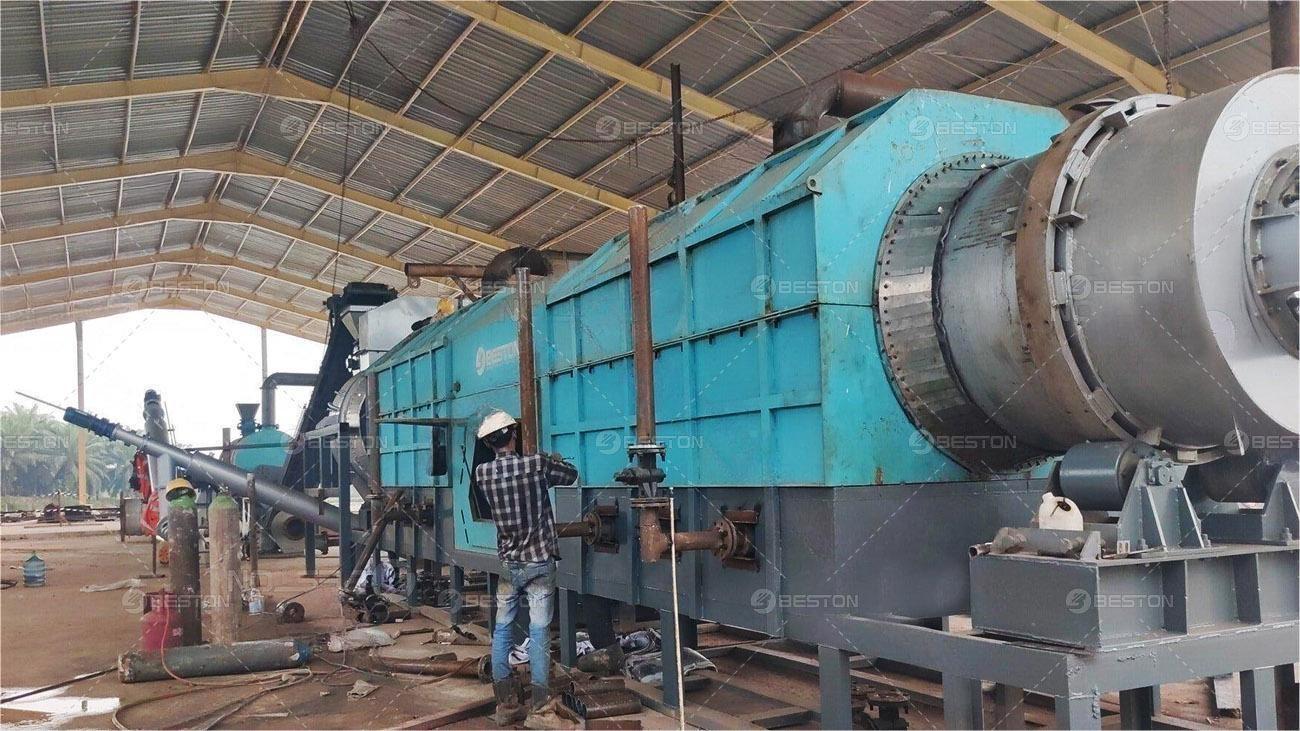In recent years, the application of biochar in agriculture has garnered significant attention for its potential to enhance soil fertility, improve crop yields, and mitigate environmental degradation. Through the utilization of advanced biochar pyrolysis equipment, farmers can harness the transformative power of biochar to optimize agricultural production and foster sustainable farming practices.
Understanding Biochar
Biochar is a carbon-rich material produced through the process of pyrolysis, wherein organic biomass such as agricultural residues such as rice husk, wood chips, or organic waste is heated in the absence of oxygen. This thermal decomposition process results in the conversion of biomass into a stable form of carbon that can persist in the soil for hundreds to thousands of years.
Properties of Biochar
Biochar possesses unique properties that make it an invaluable soil amendment in agriculture. With its porous structure and high surface area, biochar serves as a habitat for beneficial microorganisms, enhances soil water retention, and improves nutrient availability to plants. Additionally, biochar has a high cation exchange capacity, allowing it to retain essential nutrients and reduce nutrient leaching in the soil.
Impact of Biochar Application
1. Soil Fertility Enhancement
One of the primary benefits of biochar application is its ability to enhance soil fertility. By incorporating biochar into the soil, farmers can improve soil structure and porosity, increase nutrient retention, and promote microbial activity. This leads to enhanced soil health and fertility, ultimately translating into improved crop growth and yield.
2. Increased Crop Yields
Numerous studies have demonstrated the positive impact of biochar on crop yields. By providing a stable habitat for beneficial microbes and improving soil nutrient availability, biochar helps plants to access essential nutrients and water more efficiently. This results in increased root growth, improved nutrient uptake, and ultimately higher yields across a wide range of crops.

3. Carbon Sequestration
Biochar plays a crucial role in carbon sequestration and mitigating climate change. By locking carbon in the soil in a stable form, biochar helps to reduce atmospheric carbon dioxide levels and mitigate greenhouse gas emissions. This not only contributes to climate change mitigation efforts but also helps to improve soil health and fertility over the long term.
4. Water Management
Biochar application can also have significant benefits for water management in agriculture. The porous structure of biochar enables it to absorb and retain water, reducing soil water evaporation and improving water retention capacity. This is particularly beneficial in arid and semi-arid regions where water scarcity is a significant constraint to agricultural productivity.
5. Soil Remediation
In addition to its role in enhancing soil fertility, biochar can also be used for soil remediation purposes. Biochar has been shown to effectively adsorb and immobilize heavy metals and organic pollutants in contaminated soils, reducing their bioavailability and toxicity to plants. This makes biochar a valuable tool for soil remediation and environmental restoration projects.
Advancements in Biochar Pyrolysis Equipment
The development of advanced biochar pyrolysis equipment has revolutionized the production and application of biochar in agriculture. Modern pyrolysis technology allows for the efficient conversion of various biomass feedstocks into high-quality biochar with precise control over process parameters such as temperature, residence time, and feedstock composition. This ensures the production of biochar with consistent properties and performance, maximizing its effectiveness as a soil amendment.
Sustainable Farming Practices
By integrating biochar into their farming practices, farmers can adopt more sustainable and environmentally friendly approaches to agriculture. Biochar helps to reduce the reliance on synthetic fertilizers and chemical inputs, minimize nutrient runoff and leaching, and improve soil health and resilience to environmental stressors. This not only benefits farmers economically but also contributes to the preservation of natural resources and ecosystems.
Conclusion
In conclusion, the application of biochar in agriculture offers a multitude of benefits for soil fertility, crop yields, carbon sequestration, water management, and soil remediation. Through the utilization of advanced biochar pyrolysis equipment, farmers can harness the transformative power of biochar to optimize agricultural production, promote sustainable farming practices, and mitigate environmental degradation. As we continue to explore and innovate in biochar production and application, we pave the way towards a more resilient, productive, and sustainable agricultural future.

Comments
No comments yet. Be the first to react!